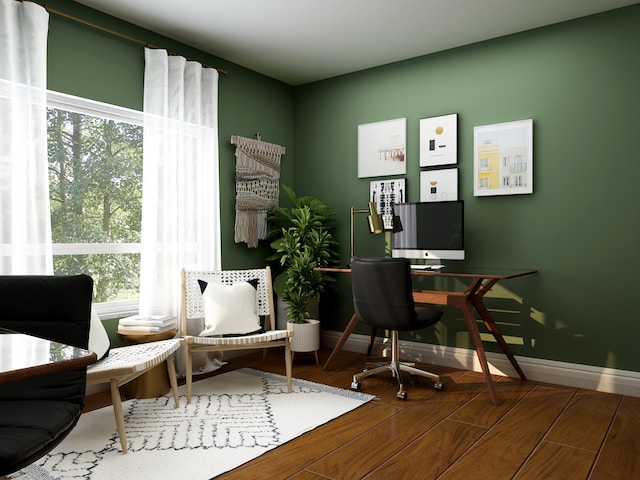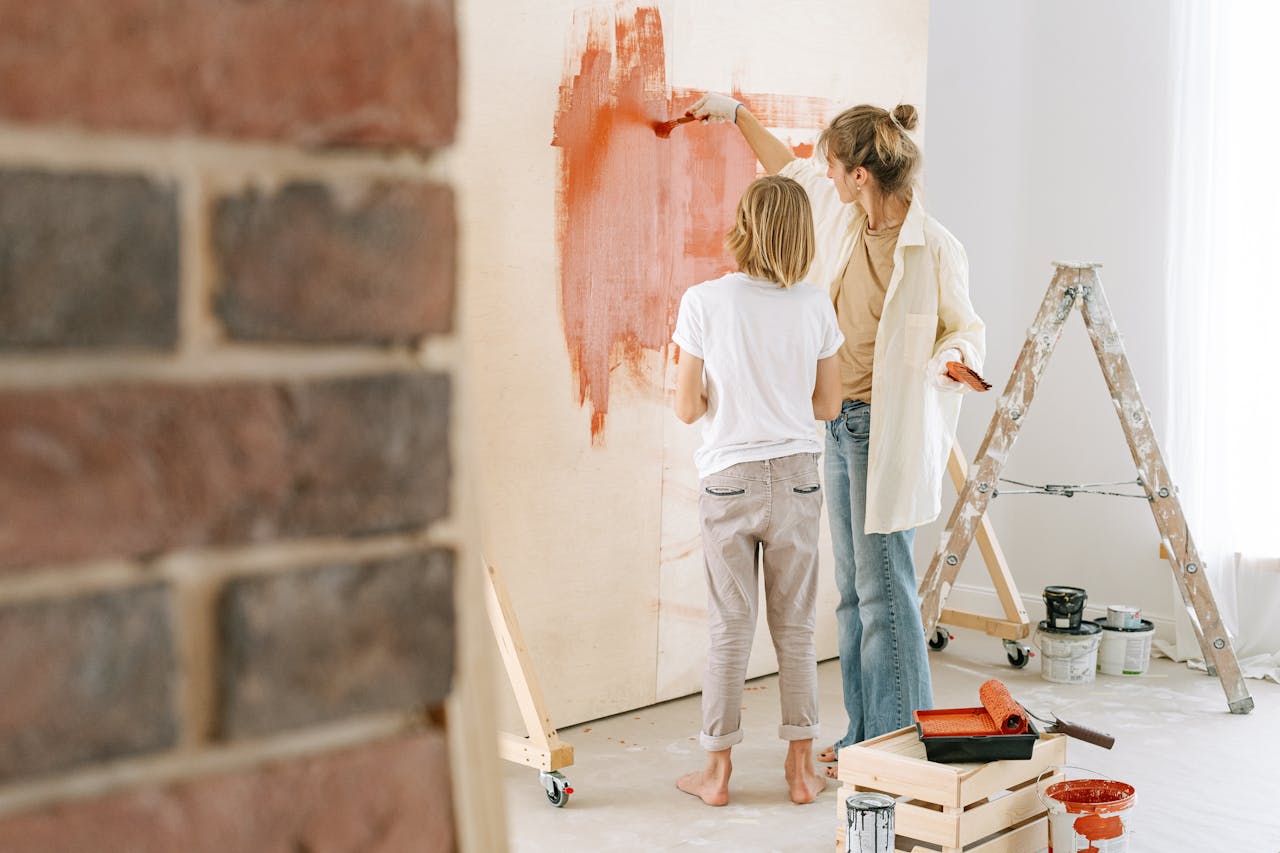Home renovation can be an exciting and transformative journey. Whether you’re looking to breathe new life into your living space or embark on a complete makeover, it’s crucial to have the right knowledge and guidance to ensure a successful home remodeling project. In this article, we have gathered insights from a panel of experts who specialize in home renovations. They will share valuable tips, and essential tools to help you navigate the process with confidence. So, let’s delve into the world of home remodeling and discover the secrets to creating your dream living space.
Things to consider before renovating your home
Embarking on a home renovation project is an exciting journey that allows homeowners to transform their living spaces and enhance the functionality of their properties, and these projects can have a significant impact on homeowners insurance. Understanding the implications and taking proactive steps to update your insurance coverage can help protect your investment and provide peace of mind during and after the renovation process.
Assessing coverage needs: Before diving into a renovation project, homeowners should evaluate their current insurance coverage. Homeowners insurance typically covers damages resulting from perils like fire, theft, and natural disasters. However, major renovations can increase the property’s overall value, influencing the home’s replacement cost. Failing to update coverage to reflect these changes may leave homeowners underinsured.
Communication with insurance provider: Open communication with your insurance provider is key. Inform them about your renovation plans, including details about the scope of work, estimated costs, and the expected timeline. This allows the insurer to assess the potential impact on your coverage and suggest adjustments accordingly. Failure to notify your insurance company about renovations may lead to complications in the event of a claim.
Here are some Q&As with the experts.
How important is the decor and styling of a home when considering a renovation project?
When planning a home renovation or remodel, the aesthetic of the space is critical; it can determine how you and your family feel about the finished product. All of the decorative elements that combine to make a home beautiful, such as furniture and lighting choices, paint colors, and flooring materials—these are all design decisions.
Before embarking on any renovation project, you should have a clear idea of what current decorating trends are and whether or not the style is something that works for your home. For example, homeowners who want to create a more modern and sleek look in their place may choose to update their furniture or buy new lighting.
For homeowners who prefer the look of a more traditional style, updating can be done so that it complements rather than clashes with existing architecture and design elements. It is of great importance to consider the design and decoration of one’s home, for these elements have a significant impact on both the enjoyment and functionality of a space, as well as its value.
Because these factors contribute so greatly to a house’s appeal, it’s crucial that you plan your renovation project with great care and enlist the help of an experienced designer or contractor who can ensure that all aspects of the job flow together seamlessly. These professionals can help you find answers to the questions you aren’t able to find on your own. You do it yourself or find some professional help. Either way, just follow your heart and focus on what you desire.
Alpana Garg from Cityfurnish.com
How important is it to take furniture into consideration before planning on a home renewal project?
Taking your current or new furniture into account with respect to a renovation project is crucial, especially if your renovation includes changing your floor plan. Opening and/or enlarging your kitchen, adding built-ins, or changing the location of a door to a room only to find out that your couch or dining room table does not work within the proposed footprint is indicative of designing in a vacuum or poor planning. It is also a sure way to end up with unplanned expenses or, worse, buyer’s remorse. A good designer will always take furniture into account.
However, if you are a Do-It-Yourselfer, then tape the dimensions of the furniture to the floor and see for yourself whether they present any obstacles or conflicts with the intended design plan. Remember to account for style matching and color palettes.
What are some key signs that my home may need foundation repair, and how important is it to address foundation issues promptly?
The foundation is the base that supports your entire home, so it’s of the utmost importance to address any issues promptly. Some common signs of foundation problems include cracks in walls or floors, doors and windows that stick, uneven floors, and gaps around window frames or exterior doors. Foundation settlement or shifting can also cause cracks in the foundation itself.
If left unrepaired, foundation issues will only worsen over time, potentially leading to major structural damage and costly repairs down the line. Fixing foundation problems early is the best way to prevent further problems and protect your home’s value. A professional foundation repair contractor can assess your home, identify the root cause of the issues, and recommend the most appropriate repair solution, whether that’s piercing, slabjacking, or another method. Don’t delay if you suspect foundation trouble – act quickly to maintain the integrity and safety of your home.
SafeBasements.com
Appliances
How important are appliances in a home renovation project, and what are some key factors to consider when selecting new appliances?
Appliances play a crucial role in any home renovation project, especially when it comes to outdoor living spaces. These spaces are designed to be extensions of your home, providing an area to entertain guests, relax with family, and enjoy the great outdoors. When selecting new appliances, here are some key factors to consider:
1. Durability and Weather Resistance
This is particularly important for appliances such as grills, refrigerators, and outdoor sinks that are used for cooking and food preparation. Look for appliances that are made of high-quality materials that can withstand the elements and resist corrosion.
2. Size and Capacity
You don’t want appliances that are too big or too small for your needs. For example, if you entertain large groups of people frequently, you may need a larger grill or refrigerator to accommodate your needs.
3. Energy Efficiency
Energy efficiency is important not just for indoor appliances, but for outdoor appliances as well.
Kona Contractors

Remodeling by area of the house
Kitchen
What would be the tips to consider before renovating your kitchen?
1. Never begin demolition until a final plan for all the proposed renovations is complete, and a general contractor, kitchen design professional, cabinet dealer, and cabinet brand have been selected.
2. Even if you think you know the contractor you want to do your renovation, still get at least three estimates. Estimates give you free advice and pricing from knowledgeable professionals.
3. Always hire the general contractor with the total cost of the renovation having been bid in advance. Starting work without a total price is how project costs spiral out of control.
4. Never pay contractors by the day or by the hour. It gives them no incentive to work efficiently and usually costs you more in the end. Plus, it makes budgeting your project impossible.
5. Construction changes like removing a wall, moving doorways, plumbing, or electricity are what create the best kitchen design. This is what affects the resale value of your home, and construction changes have less impact on the total cost of the project. Upgrades to cabinetry, countertops, appliances, and other materials are bigger budget busters.
6. Do not insist on your timeline for work and materials. The people giving you realistic competition dates usually meet them, while people that tell you what you want to hear will never give you honest answers.
Paul McAlary, President at Main Line Kitchen Design
Bedroom
What are some tips for homeowners that are thinking about renovating their bedroom?
When you begin to undertake a primary bedroom renovation, it’s important to consider your lifestyle. For example:
- Do you watch TV in bed? If so, a blank wall opposite the bed would be great to have.
- Do you have a dog crate in your bedroom? Measure your crate and make sure it will fit.
- Do you sleep in? If so, if you have a room that faces East and you want large windows, remember you will need to cover them – budget accordingly.
- Do you or your partner want a ceiling fan in the bedroom?
- Do you have small children who need to sleep near you sometimes? A small sofa or chaise is helpful for this.
Even if you live alone, allow for outlets on each side of the bed and make room for a nightstand on each side of the bed. This leads to another important question – determine what size bed you want to have first!
I recommend putting dimmers on all lights.
- Do you want a fireplace in your bedroom? I think these are nice if you’re someone who spends a lot of time in their bedroom.
- Do you or your partner want a reading or tv area that’s separate from the bed?
If you have pets, you may prefer hardwood floors and then use area rugs for softness. Or, some people prefer wall-to-wall carpeting.
Remember, it’s your bedroom – you can cater to exactly what YOU want.
Bathroom
What would be the tips to consider before renovating your bathroom?
There is so much to consider before renovating a bathroom, so it helps to break it down into phases of the project. First off, I recommend considering how much design assistance you need. If you can handle product sourcing and management, you may be able to save a significant amount of money by hiring a contractor over a design/build firm. Next, think into the future about when you will want to renovate again. Most likely, it won’t be for a while, so make sure to choose timeless finishes where possible. I recommend skipping the trendy tile, for example, and incorporating trends through less permanent pieces, like rugs and art.
Finally, make a plan for vacating the bathroom while it’s being renovated. If it’s a primary bathroom, will you need to sleep in a different room? Which bathroom will you use during the remodeling process, and how will it impact others in your household? Where will you store your toiletries during the renovation? Answering these questions and finding solutions to them well in advance of the renovation will minimize your stress, as well as that of your family members.
Bre Eggert from Average But Inspired
Backyard
What are some tips to prepare when creating a renovation project for your backyard?
To optimize your backyard, establish your objectives first. Then check with your local residential permitting department to learn about building ordinances. Now, The deck is a crucial element, so decide on the material you prefer, such as wood, concrete, or pavers. If you want shade, pick the structure that best suits you, such as a patio cover or pergola. Determine if you want it attached to your home or a stand-alone in your yard. Plan your area according to the number of visitors you anticipate entertaining. It’s vital to obtain a survey plat to understand your property’s build-line constraints. If you enjoy cooking, consider adding an outdoor kitchen, and always plan for electrical outlets for your grill area, lighting, and ceiling fans. By following these steps, you can create a functional and enjoyable backyard space.
Bobby Cravens from Beautiful Backyard Living
What should you consider before planning on building a deck in your yard?
When building a deck, your main considerations are how many deck boards your project will need by square meterage, as well as what colour, texture, and material is best suited for the design and theme of your space. The most popular decking options are made from composite material, aluminium, or traditional timber. Work out which of these materials is most appropriate for the limitations of your budget.
If using timber, your boards will need to be stained and treated with preservatives to prevent any decomposition. Composite decking is made from both recycled plastic and timber material, so it will require far less maintenance to keep it looking its best. You will need to think about how much care and upkeep you can devote to your completed decking project. For example, if your decking covers a busy area with a lot of footfall, you may be better suited to choosing composite boards, as these will need only a simple hose down every six months or so instead of a more rigorous deep clean.
Lewis Darley from NeoTimber
Is it advisable to hire a designer to help me with my outdoor remodeling project?When embarking on an outdoor remodeling project, it’s always advisable to have a plan. Sure, there are plenty of grand ideas in the big box stores. This will sometimes lead a homeowner into a precarious situation. Magazines and style guides provide inspiration, but again it’s sometimes challenging to meld it all into a cohesive whole. This is where a design professional comes in. Professional designers come in many varieties with many different designations and certifications, so it can be tough to find the right one. Hiring a designer is helpful mainly with bringing all the different ideas together to make a beautiful outdoor space.
The designer will have a vision for the project, which will be translated into a plan. The designer will also bring to the table new ideas which will enhance the quality of the work, sometimes specifying new and exciting materials, like Mountain Laurel Handrails. For the best possible outcomes, hiring a professional designer leads to the best possible outcome for your outdoor remodeling project.
James from Mountain Laurel Handrails
How to get the most out of your decking warranty
1. Obtain a copy and read the warranty. Many building products have limited warranties, which means labor is not included. The key is that the installer needs to follow the manufacturer’s instructions, including the type of hardware required.
2. Understand what your warranty covers. Most decking is warranted against fungal decay and termites that make the product unfit structurally. It does not cover warping or surface-mold, which can grow on most products exposed to the elements. There will also be a list of exclusions on what is not covered.
3. Make sure the grade stamp on the lumber bears the logo of an inspection agency that is sanctioned by the American Lumber Standards Committee.
4. Save your receipt and end tags from each size/type of lumber purchased.
5. Maintain your project. To maximize surface protection and keep your deck looking good, clean and apply a water repellent with UV blocking benefits every one to two years.
Edie Kello, Director of Marketing at Viance
Building a deck in your backyard doesn’t have to be complicated, but it does require some thoughtful planning. Before you get started, check local codes both for building permits, footer requirements, and railing guidelines. Also, consider how your deck is going to attach to your existing structure; siding on your home may need to be removed to properly attach header boards. Pricing materials in advance can also help you scope the cost of your new deck. Consider the pros and cons of pressure-treated deck boards vs. weatherproof composite decking options. Will your deck need to wrap around any trees, or would you like to incorporate a stylish pergola as part of your installation? Those details are fun to think about in advance of the job.
Emily Fazio from merrypad.com
How often should a deck be inspected and maintained to ensure its longevity and safety?
Deck maintenance is crucial to ensure the longevity, safety, and structural integrity of the deck.
Decks are constantly exposed to environmental elements such as rain, sun, wind, and ice, which can cause rot, mold, mildew, and warping if your timber is not protected. It is extremely important, and highly recommended to schedule an annual deck and timber inspection, as neglected decks cannot only be unsafe and dangerous but can lead to costly repairs if not maintained.Regular deck maintenance, every 9-12 months, can help prevent these issues and preserve the timber. A well-maintained deck is safer to use than a neglected one. Loose boards, protruding nails, and weakened supports can be hazardous to anyone walking or standing on the deck. Proper maintenance can help identify and address these issues before they become safety hazards.
Engaging in a reputable deck restoration and maintenance company to complete the annual inspections and carry out the work needed to comply with the recommendations is a sensible approach and takes away the burden from the owner. Decks and patios are an extension of one’s home and can be utilized all year round, so don’t forget to take care of them!
Brian & Danielle from DeckSeal
What are some basic tips for creating an outdoor space for all seasons?
If entertaining and using outdoor spaces all year round is something you like to do, consider a few of these tips going forward.
- Understand how weather conditions work all year round for you, try and face the area north. I also considered the wind direction both in the summer and winter months. Considering the wind was a very big deal for me, as I know it can make the space unusable very quickly. Sunlight and how it changes during the year brings outdoor blinds into consideration.
- Design size is something that can be different for everyone. Personally, I like the option of having both an 8-seater table, with the option to add to it for bigger entertaining occasions, plus a small lounge area. The last one I did was 11.5m by 4m deep. This also allowed for a BBQ area and fridges.
- Appliances and fridges, try and have fridges under the benchtop that run into the BBQ area. This allows for easy serving when preparing food. It also keeps the table everyone sits at clean. Understand the energy in the area and choose the appliance for that. I have mains gas to the BBQ and normal power for the fridges. Note that gas regulations can have a say in range hoods that may require compliance.
- Fans, lighting, and electrical points are super important. Fans help push both cold air and hot air around. Outdoor heaters are very important to enable use in the colder months. Remember the blinds you choose when buying these. Get this right, and you have an area you can use a lot more during the year.
- Flooring is such a personal thing. Integration from the indoor to match the outdoor is always popular. My tip is to choose a floor surface that is easy to maintain and allows for quick cleaning. In my last outdoor area, it was tiled.
- Sound, speakers, and TV do not forget this. It can make the area work in so many ways. Charging points for friends who always have no battery left on their phones. A speaker system for friends allows them to jump in and play music and of course, the ability to show the big game outside. I often use my tv and speaker system to play some great relaxing music.
Tristan Kirkham, Managing Director at New Home Building Brokers
What are some tips if you want an outdoor kitchen?
Firstly, research appliances- especially gas vs. propane grills. Both have pros and cons, but if your home already uses natural gas, installing an additional gas line for your outdoor kitchen makes a lot of sense. The upfront costs will be higher, but you’ll never have to fuss with swapping out a propane tank or running out of fuel while entertaining. What type of countertop material should you choose? We love granite because it’s durable, low maintenance, and heat resistant, but make sure you have it sealed because it is porous and prone to fading. The aesthetic of your outdoor kitchen matters, too. A classic option is to use stone cladding and coordinate the stone with what is on your house. If you’d like a more modern look, NatureKast weatherproof cabinetry offers many styles to suit your taste. A final pro tip: We recommend having your appliances on-site during construction so that your contractors can make modifications in real-time, if necessary.
Karcy Lawson from O’Keefe Built
What are some ideas for optimizing your side yard?
The side yard is often the least considered part of our property. Perhaps too much shade makes growing healthy grass a losing battle. Never fear! Here are some ways to truly optimize your side yard:
- A handsome gate not only creates security and privacy but also brings a little intrigue to your side yard.
- If space is at a premium, consider a vertical garden. Wall planters are excellent vessels for your garden. Trellises are also another option to add interest to your side yard.
- A potting station allows easy access to your garden while hiding the inevitable mess of tools and soil.
- An arbor or pergola can bring interest, allow for climbing vegetation and make the area a pleasant journey to the backyard.
- Install a private patio with scented shrubs to escape the stresses of the day.
Sandy Barth from Georgia Front Porch

Types of renovations and insurance implications:
- Structural changes:
- Adding new rooms, expanding the footprint, or making structural modifications can increase the home’s replacement cost. Ensure your coverage reflects these changes to avoid being underinsured.
- Kitchen and bathroom upgrades:
- Improvements to kitchens and bathrooms often involve installing expensive fixtures and appliances. Review your policy to ensure it covers these upgrades and consider additional coverage if necessary.
- Roof replacements:
- Installing a new roof can enhance the property’s resilience to weather-related damages. Some insurers offer discounts for impact-resistant roofing materials, so be sure to inquire about potential savings.
- Smart home features:
- Integrating smart home technology can add value to your property but may also require adjustments to your coverage. Discuss these upgrades with your insurer to ensure they are adequately protected.
- Home office additions:
- With the rise of remote work, many homeowners are adding home offices. Confirm that your homeowners’ insurance covers home-based businesses and any related equipment.
Home renovations are an investment that can significantly enhance your property’s aesthetic appeal and functionality. However, it’s crucial to recognize the impact these projects can have on homeowners insurance. By staying proactive, communicating with your insurance provider, and updating your coverage as needed, you can ensure that your home is adequately protected throughout and after the renovation. Taking these steps will safeguard your investment and provide you with the peace of mind to fully enjoy your newly transformed living space.




